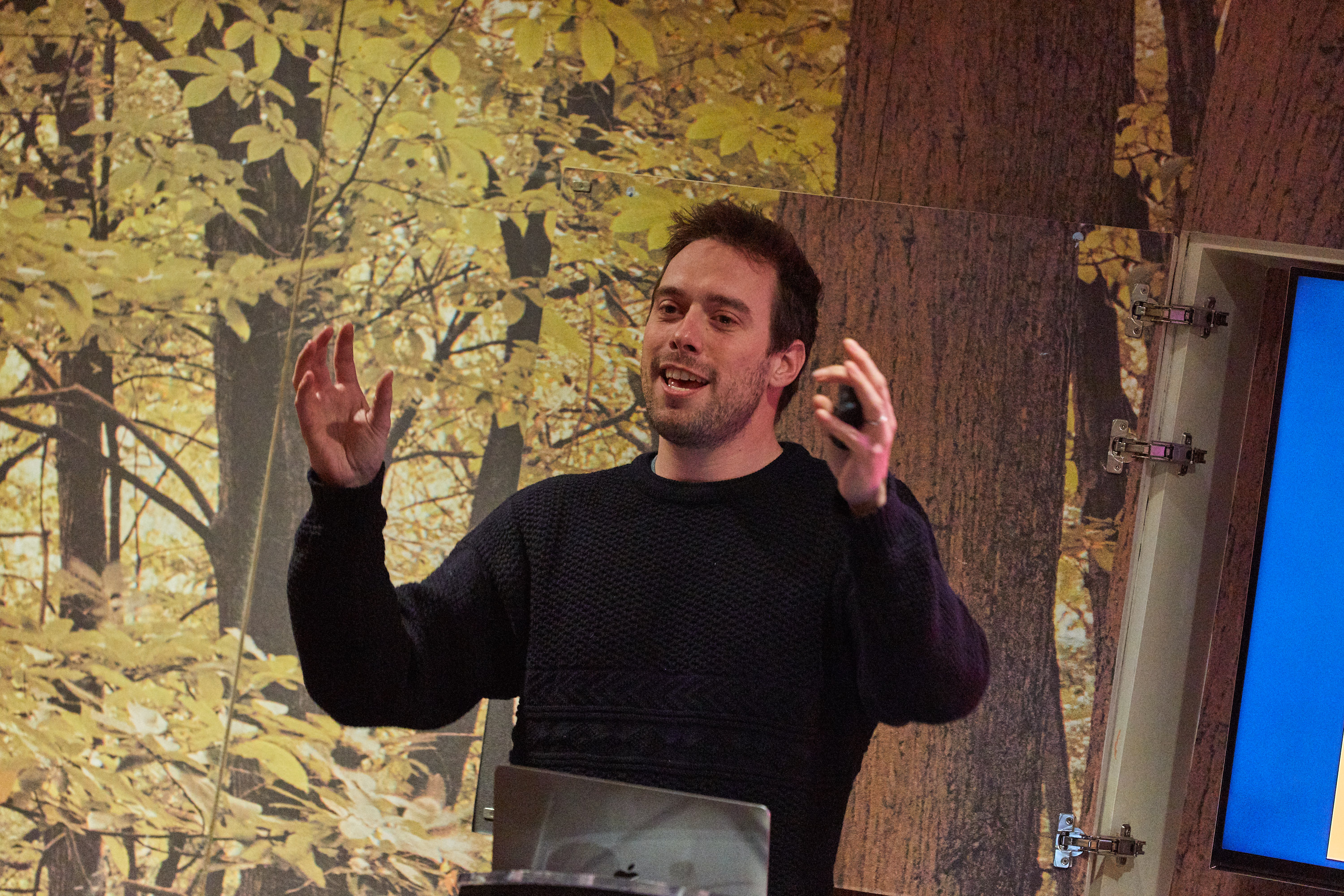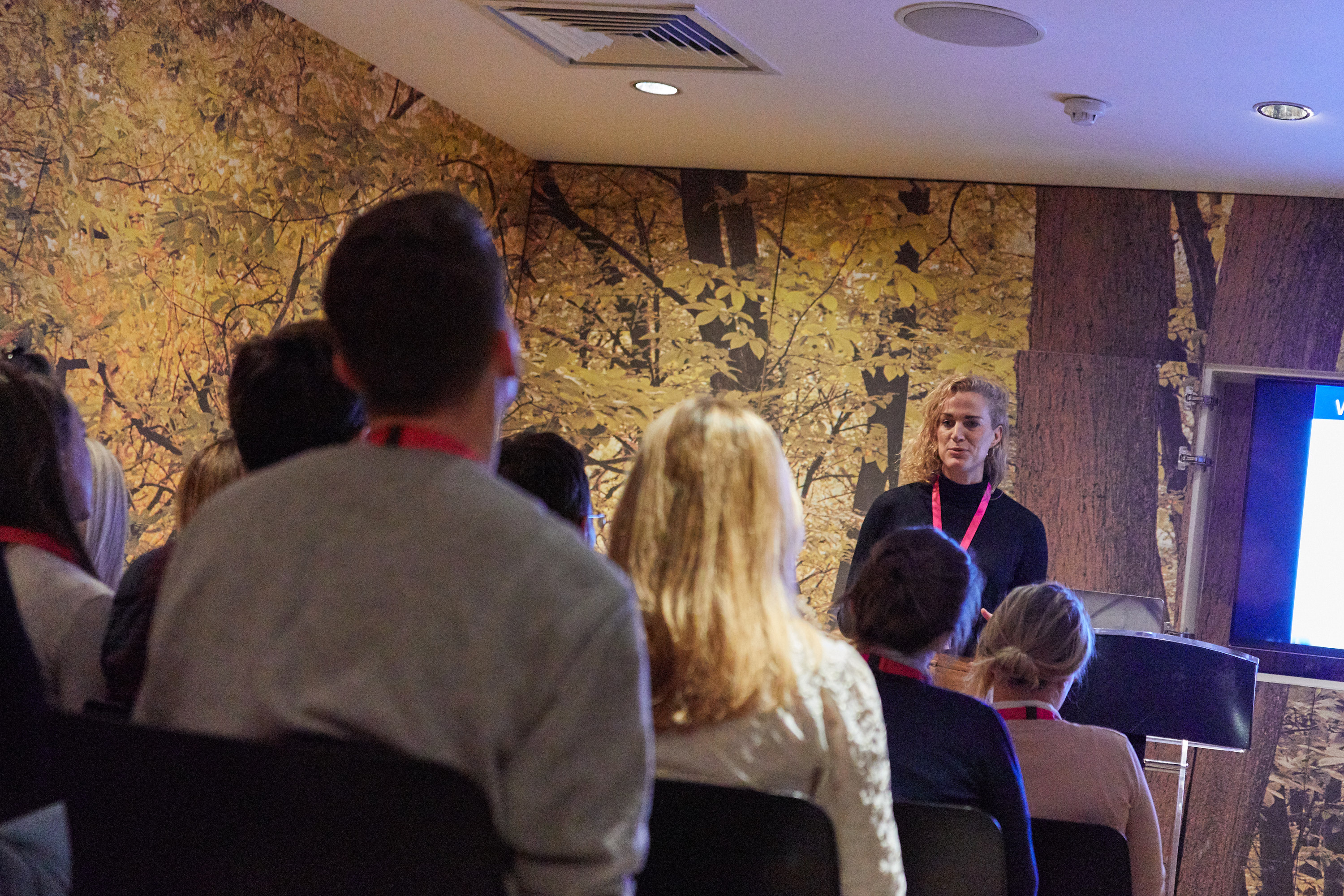BareAll: Communities of Change – part one
We all know that business and consumer communities are increasingly motivated to support sustainability, it’s a trend that isn’t going anywhere. This month’s BareAll invited four key players in the food and wellness industry to talk about harnessing the power of change and what they do to make the difference to their consumers and our world.
As these four pretty incredible businesses talk us through their stories and journeys, we find out what it takes to be an ethical brand, challenging perceptions and creating products and content to promote change. And because there’s so much juicy info, we decided to give you all the good stuff in two delicious chunks, with part one this week and part two to follow next week.
So, without further ado – BareAll Pt 1…
A Better Treat
Richard Wilkinson, Doisy & Dam

We got off to a great start, with Rich handing out chocolate. Already winning.
Doisy & Dam are a leading challenger brand in the UK chocolate industry, selling their bars with the promise of never having more than 8 ingredients, a minimum 8% superfoods and have a high cocoa content to squeeze out the room for sugar and fat.
Doisy & Dam (named after two Nobel prize winning scientists – Edward Doisy & Henrik Dam, the discoverers of Vitamin K) is Rich and Ed, two best chums, friends since they were kids, business partners for life. Their first idea was a vitamins subscription box but they soon worked out that wasn’t going to cut it. They knew they wanted to help people be more healthy and arrived at the idea of superfoods. And chocoholism informed their direction.
Rich and Ed wanted to create a bar of chocolate people would be proud to have on their desk, something to shout about, a chocolate with better quality ingredients. They saw two opportunities in the uk:
- Make products for supermarkets like Tescos, selling cheap, low-quality chocolate
OR
- Follow in the footsteps of artisanal brands making chocolate with cocoa beans they source around the world, putting hours into making the chocolate
And so, Daisy & Dom was born – an ethically-driven, artisan chocolate with traceability and sustainability at the forefront of their strategy.
They sold their bars in 20 shops, sampling and gathering feedback. They sent it to Wholefoods who sent it back with a lot of notes (some of their packaging copy was actually illegal!), so they made some changes and launched in Ocado, Holland & Barrett and Boots. Then they doubled the range and crowdfunded to move the brand forwards.
Starting in such an excelled way, Rich and Ed didn’t have the chance to think about their values outside of making delicious superfoodie chocolate bars. So, 18 months ago, they sat down to think about what really matters to them. And now they cater for vegans, are sustainable and have an organic range. But what they always wanted to do was bring their chocolate to everyone, make it accessible to all. And now is the time. Says Rich:
“The ‘free from’ revolution isn’t going away and it’s not a fad, people are making choices in their diet to be vegan or gluten free. It’s our job as a company to be respectful of that and to cater for everyone. If you don’t cater for everyone you are missing out on a big portion of the population.”
Doisy & Dam and BCorp
BCorp is an American standards agency for people who do good in the world. A BCorp company leaves more than they take away and Doisy & Dom do just that. But how?
- Positivity: by creating a company good for the world, everyone who works here feels the impact of what they do, plus all employees will be shareholders by end of 2019.
- Environmental: importing cocoa means they need to reduce their environmental impact in other ways and aim to be plastic free by end of 2019.
- Transparency: Rich and Ed can tell you exactly where all their ingredients come from – from which farm and supplier.
- Supply chain: they buy their cocoa direct from Columbia and help local farmers retrain to produce sustainable crops.
- Long term mission: the BCorp guidelines means they can’t deviate from their promises. Their goal is have their own plantation, and they’ve already found a place in Northern Columbia.
Now the guys know what they stand for and what their long term goals for change are they’re flying – 1500 stocking points and growing weekly, they’ve sold 1.4 million bars to date. And with free-from foods forecast to grow, we reckon they’re onto a good thing. Plus their chocolate was amazing. Get some.
Communities of Change
Ylva Johannesson, The Sustainable Restaurant Association

Ylva started by telling us her story: with a background working in restaurants, she studied nutrition under Tim Lang, after which she went to Brussels to work for the European Commission and returned to London to work for the SRA. It’s an impressive CV!
The Sustainable Restaurant Association is a not-for-profit working with anyone in the business: chef, producer, restaurateur, hotelier, supplier or discerning diner – the key aim is to bring everyone together and talk about a sustainable food system. Restaurants are part of our communities, and Ylva believes it’s crucial they give back.
What they do
The SRA help their members make sense of the issues that matter to them and their online community platform is a place where everyone can share questions, ideas and thoughts. The aim is to:
- Help food service businesses pinpoint their challenges, get expert advice, connect with the right people and share ideas.
- Help suppliers provide the solutions food service businesses are looking for.
- Help diners make the most sustainable choices when deciding where and what to eat out.
Restaurants are notorious for using a lot of energy, water and electric so the SRA look at sustainable food sources and research food issues and trends to help restaurants make decisions that are best for people and planet. As Ylva and the SRA put it:
“Our food matters. Every choice we make around the food we produce, cook, serve and eat is a vote for the food system that supports it.”
Building a business’ sustainability credentials is a process, not an overnight win, which is why the SRA work with members to plan their journeys step-by-step, and are realistic about what’s achievable. Ylva recognises that each piece of progress made within the community is a step forward and has four top tips to get ahead:
- If you’re already working on sustainability initiatives, shout about them!
- If you’re considering implementing sustainability initiatives in your business, but you’re not sure how, just ask.
- If you’re not yet planning on taking the first steps on your sustainability journey, it’s time to reconsider.
- Take sustainability seriously, it’s the future of your business.
Case Studies
Hawksmoor steak restaurants
Hawksmoor were already doing well in terms of animal welfare so the SRA worked with them to tackle a wider range of issues, such as food waste and recycling across all of their sites. The specific changes that helped make the difference were:
- Introducing sustainable seafood supplier agreements
- Switching to fairtrade organic coffee
- Working with schools to educate pupils about sustainability
- Extensive sustainability training for staff
- Separating food waste onsite for recycling
The Breakfast Club
The Breakfast Club are integrating with the local communities through an unlimited amount of volunteer days for their staff that they fund through merchandise and events and the SRA had some advice to help them make the best of this amazing programme:
- Pick charities you believe in
- Put the charity’s needs first
- Set out the relationship terms up front
- Ensure an open and transparent relationship where you’re both clear about your needs
- Play to your staff’s strengths, don’t volunteer them for anything that makes them feel uncomfortable
Some excellent advice and take-aways from the first two speakers at the event, stay tuned for next week’s installment where we look at meaningful content and belief-driven consumerism.